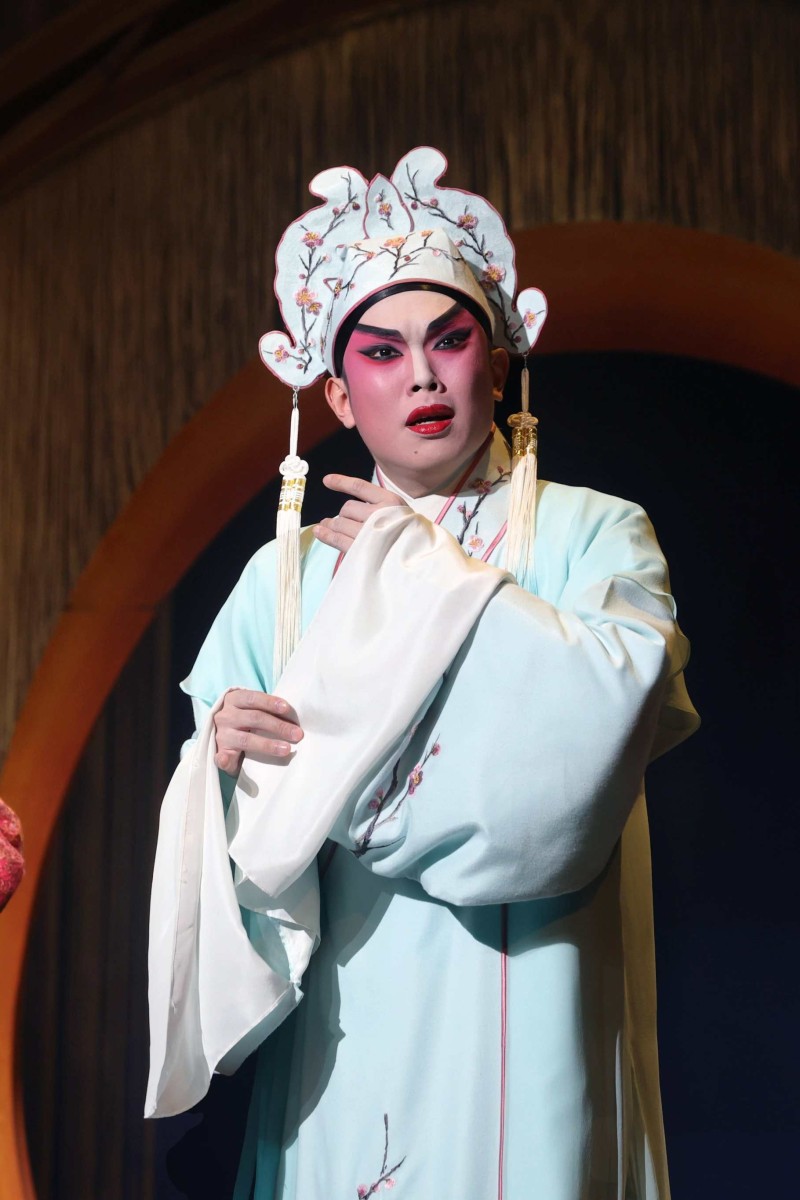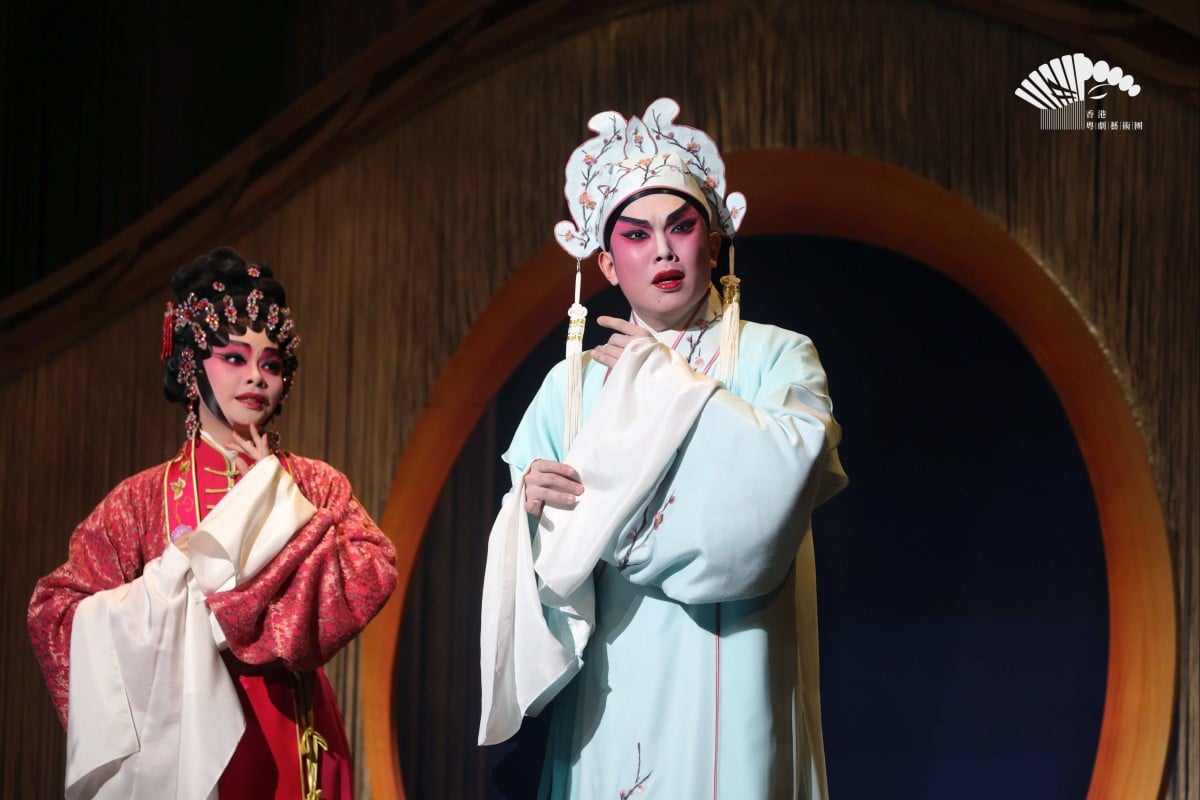
How a Cantonese opera troupe in Hong Kong is bringing new life to this ancient art
Hong Kong Cantonese Opera Troupe is finding ways to update this performing art to attract younger audiences
 Thompson Vong Seng-pan performs in “The Butterfly and the Red Pear Blossoms”. Photo: Handout
Thompson Vong Seng-pan performs in “The Butterfly and the Red Pear Blossoms”. Photo: HandoutEven after 20 years of learning Cantonese opera, 31-year-old Thompson Vong Seng-pan is still a newbie. Most other performers are middle-aged.
But he understands why younger generations are not interested in this art that is centuries old.
“Teenagers [find] Cantonese opera dull because it’s really long, and they sing traditional songs that they do not really understand,” Vong said through a translator.
Still, Vong and his troupe, the Hong Kong Cantonese Opera Troupe, are trying to make the art more exciting for young people.
Saving a tradition
Cantonese opera originated in Guangdong province, and it tells a story through singing, acrobatics and martial arts.
Founded in May of 2023, the Hong Kong Cantonese Opera Troupe adds some modern updates to this art to appeal to today’s audiences.
“[We are] upgrading and redesigning the [backdrops] and the stage lighting ... which creates more variety on the stage,” explained the group’s promotion and events manager Yam Yuen-yam.
These upgrades include animated projections and special stage designs, lighting and music for more eye-catching performances. During shows, they also provide subtitles to help the audience follow along with the lyrics in the traditional songs.
So far, the troupe has put on four major productions. The most recent one was The Butterfly and the Red Pear Blossoms in August.
The next generation
Vong and Yam agreed that the art of Cantonese opera was not very popular among most young people.
“Teenagers don’t really know this kind of art; it’s mostly the elderly who are more familiar with it,” Vong said.
Thus, many groups in Hong Kong are trying to make Cantonese opera more approachable for the next generation, such as the Xiqu Centre, which has performances made for new audiences.
To introduce more young people to this art, the Hong Kong Cantonese Opera Troupe leads interactive workshops at schools. The actors discuss props and show some of the skills needed for this art form.
Vong, who has joined some of the events, said he was happy to see how they helped students’ interest in Cantonese opera grow.
“[These] are great if the children are going to learn Cantonese opera in the future,” Vong said.
Yam added: “It gives students a basic understanding of Cantonese opera ... [which] has a long history, and its culture and heritage have to be protected.”
Advice from a young performer
Vong, who was born in Macau, remembered how he first felt when he watched a Cantonese opera show.
“My first impression is that the costumes are very beautiful and the Cantonese opera [actors’] voices are really good, so it was really attractive to me,” he said.
At the age of nine, Vong convinced his parents to sign him up for lessons at a local community centre.
After nearly a decade of learning the art, he decided to try to make a career as an actor. He moved to Hong Kong because “the market of Cantonese opera is larger and more people would watch it”.
Now, as a full-time actor, Vong shares his passion for Cantonese opera with crowds across Hong Kong, and he hopes to see more young people get involved.
He encouraged youngsters to watch the shows, adding that they might particularly enjoy the fight scenes.
“Even if they do not understand the songs or dances, they can feel the emotions on stage, like when they fight or when they cry,” he said. “[It] will feel more impressive.”
acrobatics 雜技
an athletic feat similar to gymnastics, involving flips, jumps and twists
animated 動畫的
describes images that look as if they are moving
appeal 有吸引力
the quality of being attractive or interesting
decade 十年
ten years
eye-catching 引人注目
something visually interesting and intriguing
impression 印象
an idea that you get about something
impressive 令人讚歎的
making you admire them, because they are very large, good, skilful, etc.
middle-aged 中年的
people who are aged about 45 to 65
